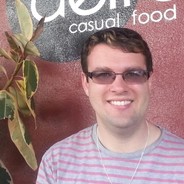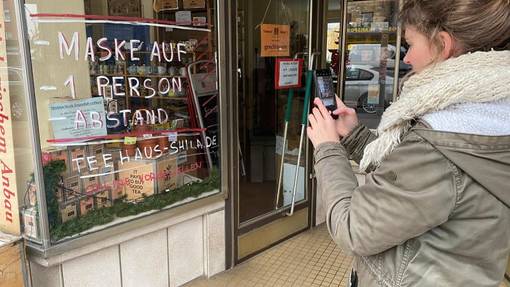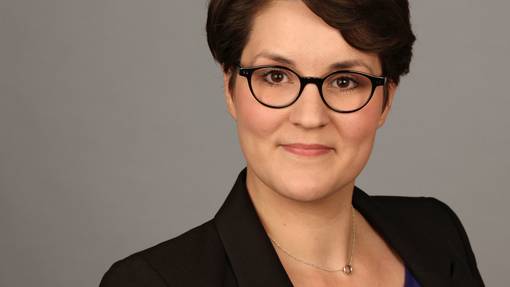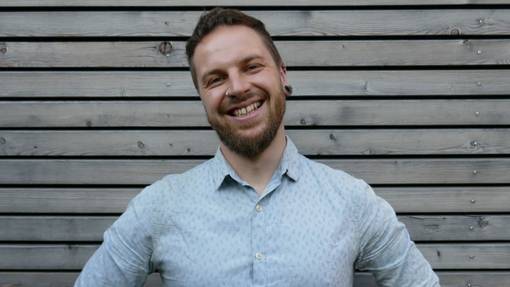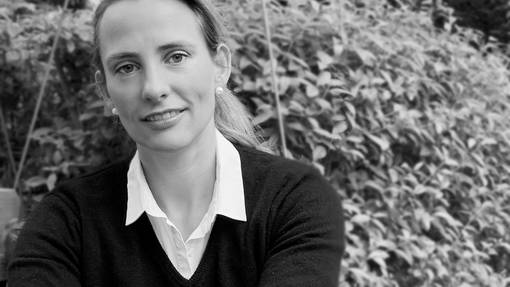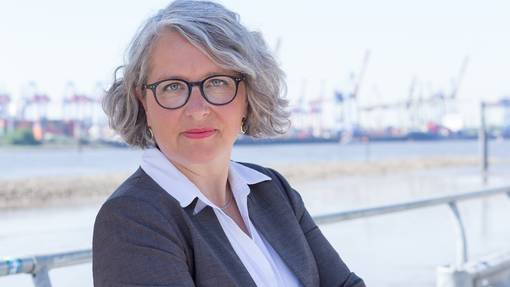#Coronazeit #waszählt! #Wissenschaft
The Challenge and Opportunity of Corona Times
Brach Jennings, Stipendiat bei Dissertation Plus
Corona times have been both a challenge and an opportunity for me. When the Pandemic first struck and Tübingen became something of a “ghost town”, I remember thinking, “well, nothing changes for me as a doctoral student.” Indeed, for the first month or so, I took advantage of the increased opportunities for quiet study and devoured academic texts on my Kindle related to my dissertation. By week 5 or so of quarantine times, though, I began to feel lonely and to long for increased social interaction.
I realized then how the pandemic presented both an opportunity and a challenge for a doctoral student. The opportunity comes from what I have just mentioned: increased time for quiet study and reflection, in order that my scientific work progresses in a timely fashion. I am grateful for this opportunity, and feel I am making good progress in my studies. The challenge comes from loneliness – the agonizing experience of being away from loved ones both in Germany and the US. I rejoiced when I was able to visit my Doktorvater at his home again, as conditions began to ease around in-person interactions. Further, just when I thought loneliness would win the day in my social interactions, the people I am closest to in Germany started re-appearing through walks in parks, lunches, and evenings over wine and beer. It was wonderful to feel human again, while also acknowledging the immense privilege I have in that I have not contracted COVID-19, while so many in my home country and throughout the world have succumbed to the disease.
Admittedly, I do not have much hope for the United States government as a whole in light of this catastrophe. I began following US news daily again when the pandemic hit, and am enraged by my government’s response to this catastrophe. In strong contrast to Germany, where I believe Chancellor Dr. Merkel is to be commended for her handling of COVID-19, my “President” (if one can use such a word for the man currently inhabiting the White House) either downplays the disease entirely, or uses it as an excuse for increased racism and xenophobia. Persons of color have contracted the disease in disproportionately higher amounts, yet Mr. Trump has still had the audacity to refer to the virus as “Kung Flu.” When the brutal murder of George Floyd in Minneapolis at the end of May is added to the mix, things are especially bleak. Still, I am impressed with the response by some governmental officials to the catastrophe of COVID and the murder of Mr. Floyd, who have critiqued Trump vigorously, and who show solidarity with persons of color in these times of increased systemic white supremacy. I also have hope in the immense strength and vitality of the #BlackLivesMatter movement.
Corona thus became a “both/and” experience for me. Lutheran theologians thrive on “paradox” and notions of “both/and,” so even in saying this I am being a good Lutheran systematic theologian! Living into the paradox of productivity and loneliness, quiet reflection and longing for increased personal interactions, and silence and activity has been a test of endurance. Hope seems in short supply many days, when I see what my “President” is doing (or, better, not doing) to combat COVID-19 and police brutality. Yet, in the end, I am finding that during the greatest challenges the greatest opportunities also arise. I have had many meaningful conversations via the internet with people whom I interact with far too infrequently in “normal” times. And, in spite of the chaos of the world right now, I have shared many joyous laughs with friends, both in person and virtually.
I have also experienced firsthand the theological themes of waiting, and of having hope in spite of perceived hopelessness. This waiting in hope centers in trusting the God who experienced the depths of hopelessness and godlessness on Holy Saturday, when Jesus of Nazareth lay dead in the cold garden tomb of Joseph of Arimathea. On Holy Saturday, there was no guarantee of a future for the first disciples who saw their leader and friend brutally executed by the Roman state. The Word who spoke creation into being was speechless. Yet, this silent Word is, paradoxically, the Word of promise – the Word of life in spite of death. Christian hope in the promise of Easter, when God raised the dead Jesus from the tomb of Joseph of Arimathea, is paradoxically strengthened when it is centered in the period of uncertain waiting found on Holy Saturday. Holy Saturday is waiting in the “death of the living God,” as Eberhard Jüngel would say.
The living God who triumphed over death on Easter Sunday by first going through total death and godlessness, means the world God created has a future, even when it seems otherwise in times of catastrophes! The world’s future is then a future in and through the living God, who has experienced the fullness of despair, death, and hell (indeed, Christ descended into hell, as the Apostles’ Creed teaches), who leads the world through and out of despair and into the future of New Creation. It is this future, coming from the God who raised the dead Jesus of Holy Saturday that gives me hope in spite of frequent bouts of hopelessness. I see glimpses of said future politically in protest movements like #BlackLivesMatter, and in political officials acting for the sake of the most vulnerable in society. I see them personally when interacting with loved ones, and in “laughing to spite the Devil,” as Martin Luther would say. It is a paradoxical existence in these times, to be sure. But continued existing and flourishing is worth fighting for, even amid catastrophes. Anything else would not be a testament to the future of the living God seen in Jesus of Nazareth who, from a Christian theological perspective, is the liberator of all who experience suffering, catastrophe, and godlessness.
Artikel kommentieren
Kommentare sind nach einer redaktionellen Prüfung öffentlich sichtbar.

